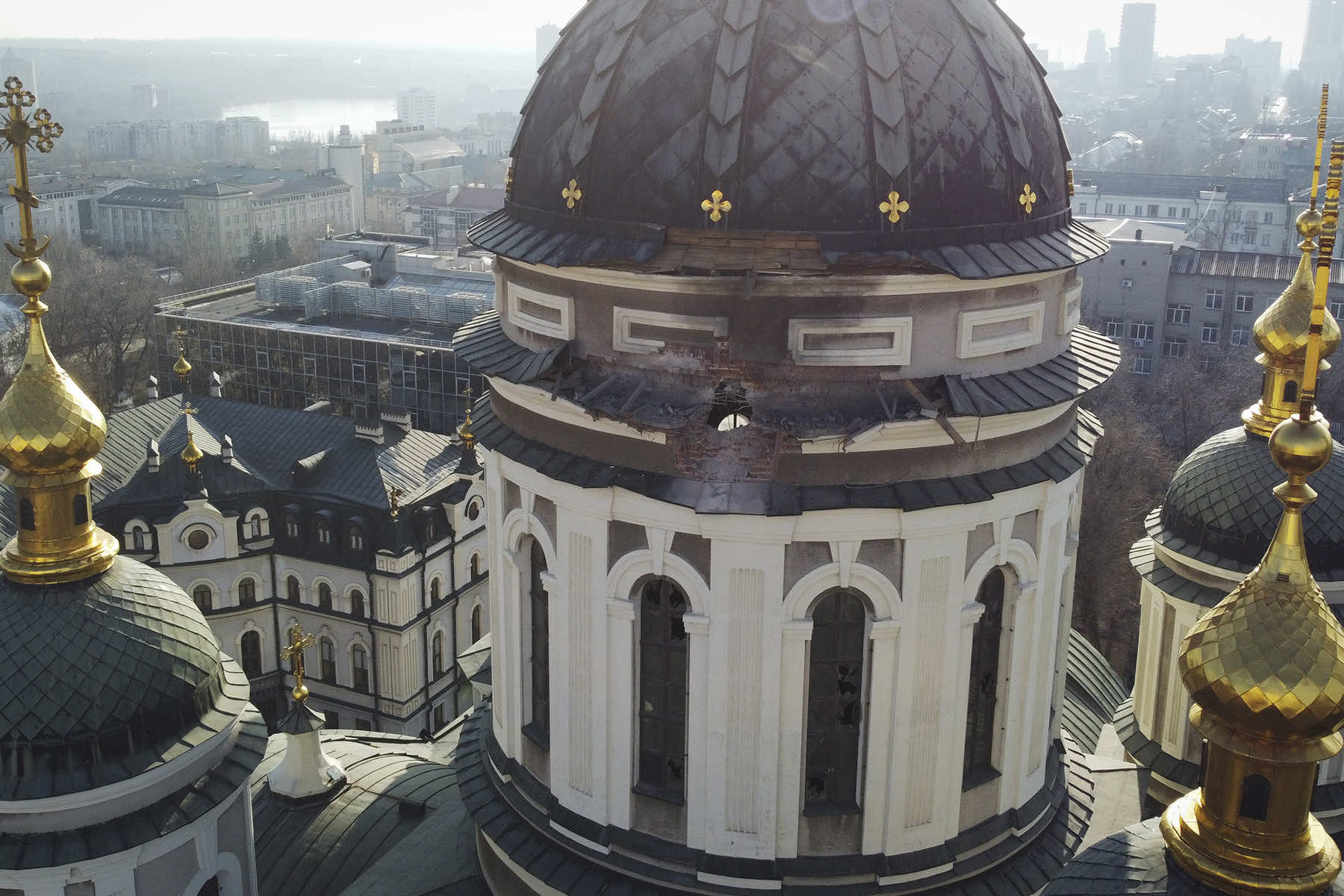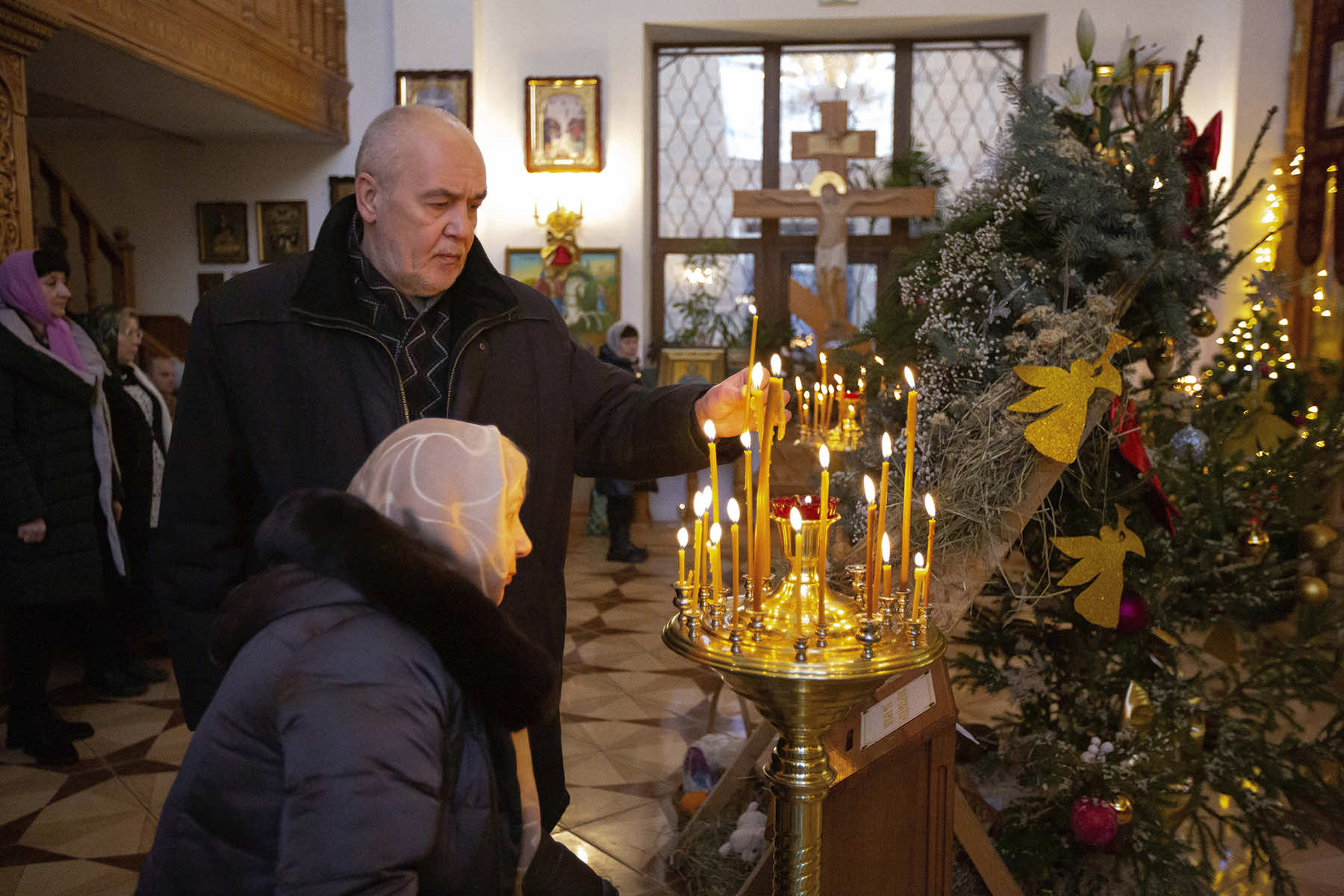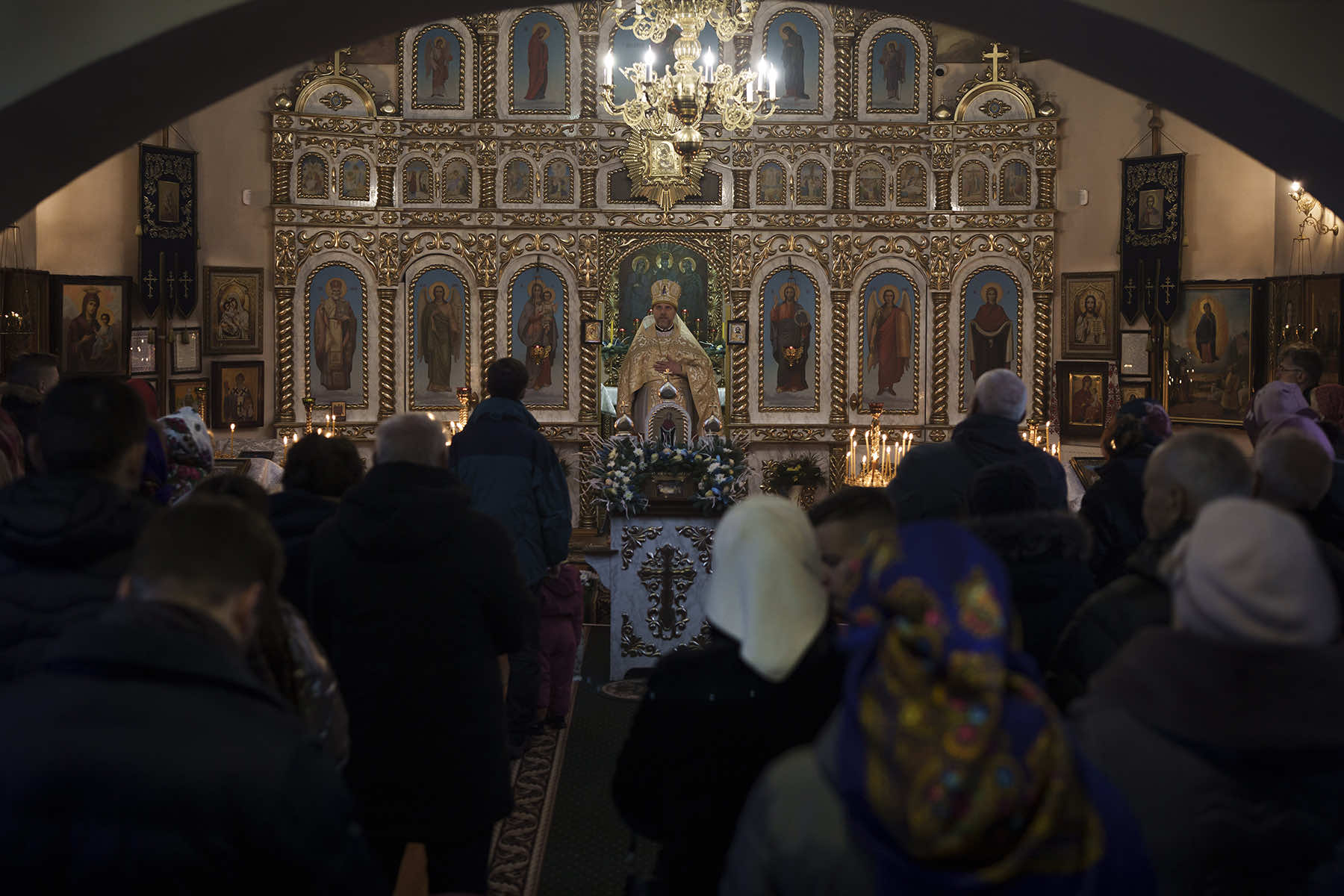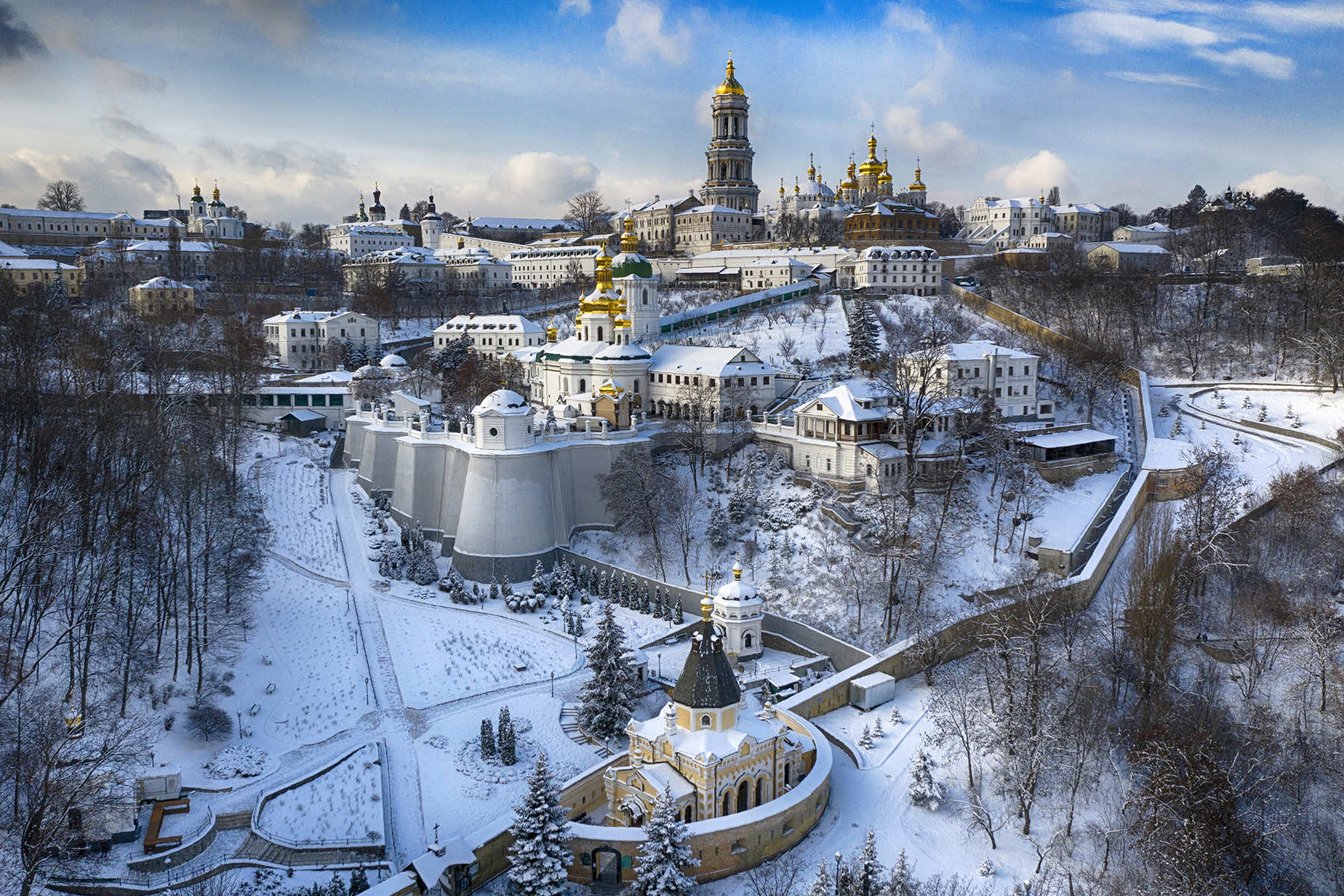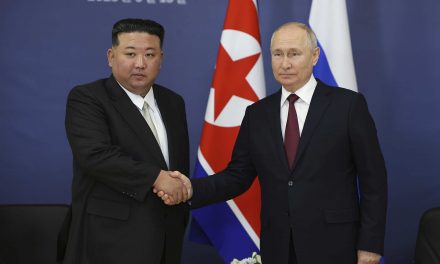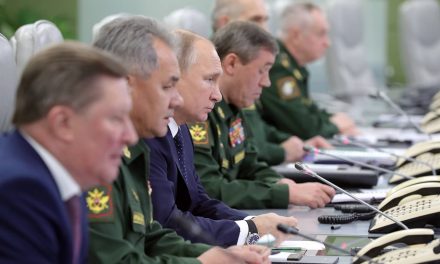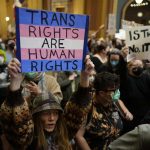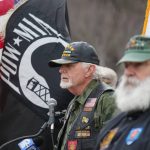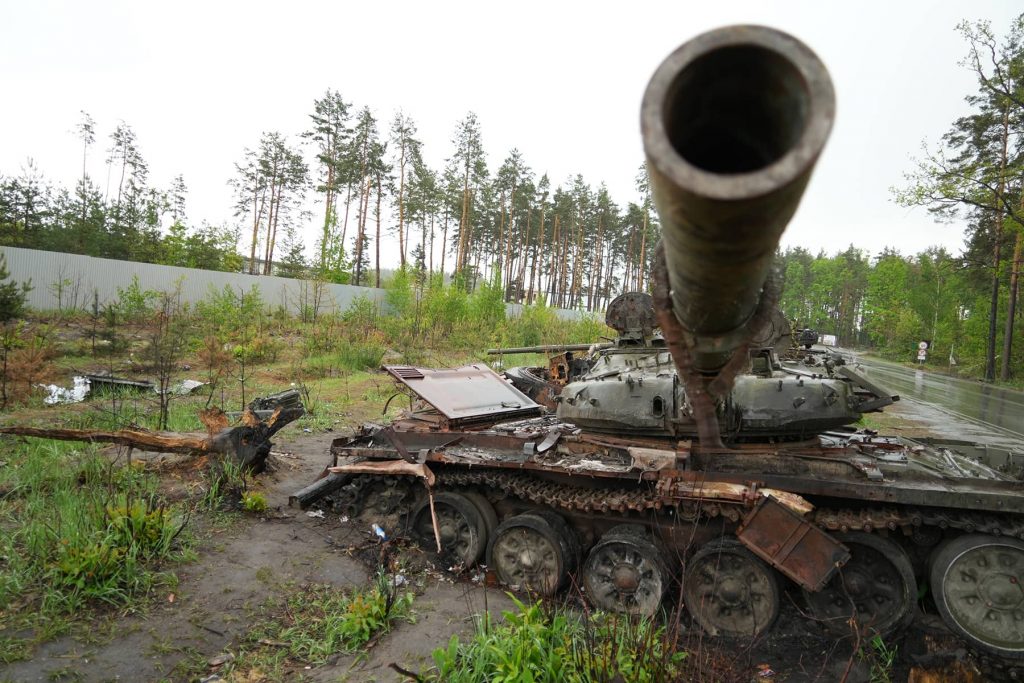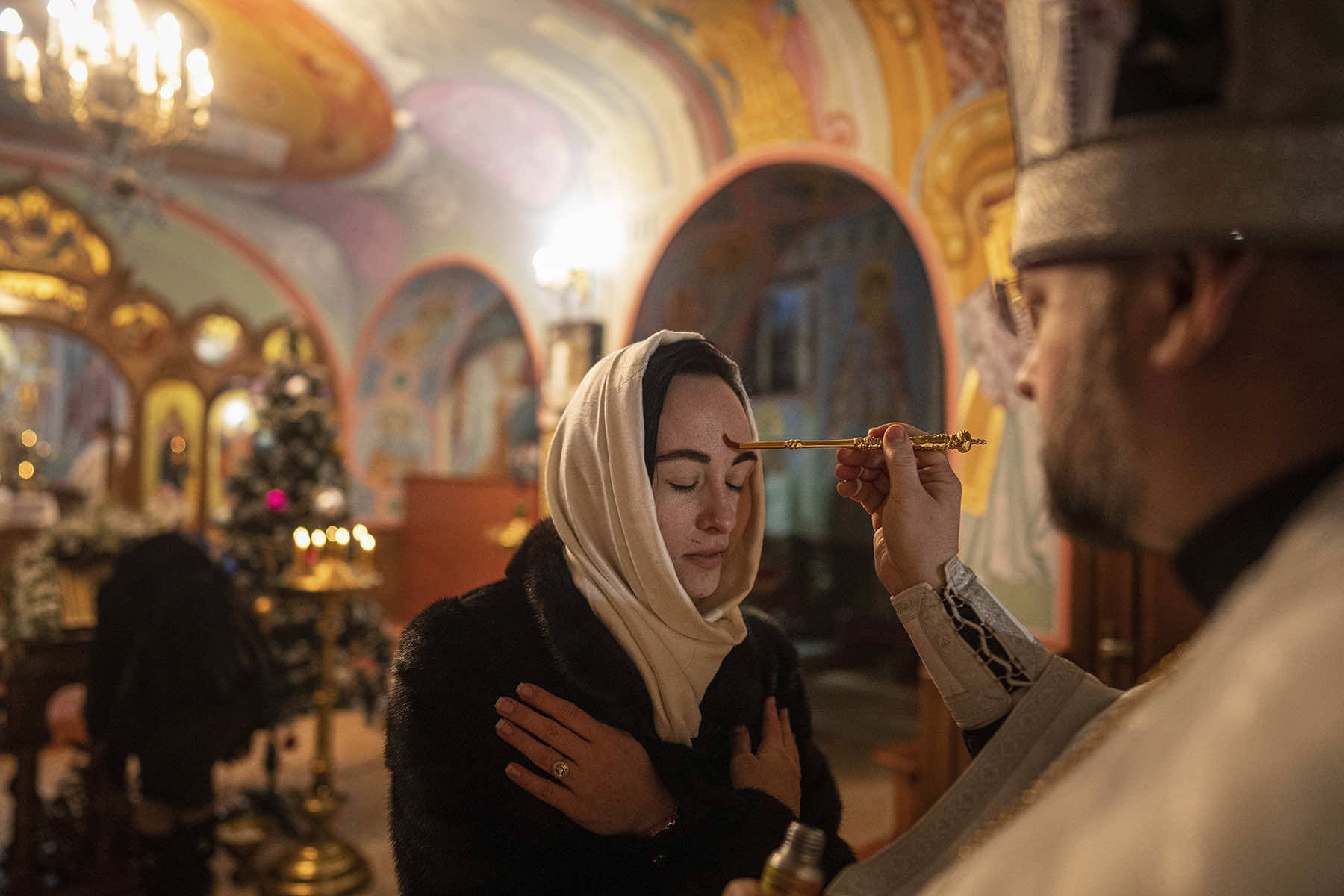
Ukraine’s President Volodymyr Zelenskyy on July 28 signed a law moving the official Christmas Day holiday to December 25 from January 7, the day when the Russian Orthodox Church observes it.
The explanatory note attached to the law said its goal is to “abandon the Russian heritage,” including that of “imposing the celebration of Christmas” on Jan. 7. It cited Ukrainians’ “relentless, successful struggle for their identity” and “the desire of all Ukrainians to live their lives with their own traditions, holidays,” fueled by Russia’s 17-month-old aggression against the country.
Last year, some Ukrainians already observed Christmas on December 25, in a gesture that represented separation from Russia, its culture, and religious traditions.
The law also moves the Day of Ukrainian Statehood to July 15 from July 28, and the Day of Defenders of Ukraine to October 1 from October 14.
The Russian Orthodox Church, which claims sovereignty over Orthodoxy in Ukraine, and some other Eastern Orthodox churches continue to use the ancient Julian calendar. Christmas falls 13 days later on that calendar, or January 7, than it does on the Gregorian calendar used by most church and secular groups.
The Catholic Church first adopted the modern, more astronomically precise Gregorian calendar in the 16th century. Protestants and some Orthodox churches have since aligned their own calendars for the purpose of calculating Christmas and Easter.
Ukraine’s religious landscape has fractured for years. There are two branches of Orthodox Christianity in the country, one aligned with the Russian church, even as it enjoys broad autonomy, the other completely independent of it.
The Orthodox Church of Ukraine, the branch that is separate from the Russian church, announced earlier this year that it was switching to the Revised Julian calendar, which marks Christmas on December 25. Its leadership last year allowed believers to celebrate the holiday on December 25.
Zelenskyy traveled to the war-torn Donetsk region in eastern Ukraine, which Russia has illegally annexed, but only partially occupies, and met with members of the country’s Special Operation Forces. Zelenskyy noted in an online statement that July 29 marked their official day of recognition, and also the anniversary of the deadly attack on the Olenivka prison in the Russian-held part of the region in which dozens of prisoners of war were killed.
Ukraine accused Russia of the attack, saying that the assault was premeditated in a bid to cover up atrocities. A United Nations fact-finding mission requested by Ukraine was sent to investigate the killings, but the team was disbanded in January 2023 due to security concerns.
Zelenskyy described the attack as one of Russia’s “most vile and cruel crimes” in a video statement.
In a separate Telegram statement, he hailed the soldiers in the Donetsk region for “bringing closer the day when all our land and all our people will be free from the occupiers” and underscored the Special Operations Forces’ role in the recent retaking of the village of Staromaiorske in the area.
His visit to the east comes just days after Western and Russian officials said that Kyiv’s forces intensified attacks in the southeast of the country as part of Ukraine’s counteroffensive.

